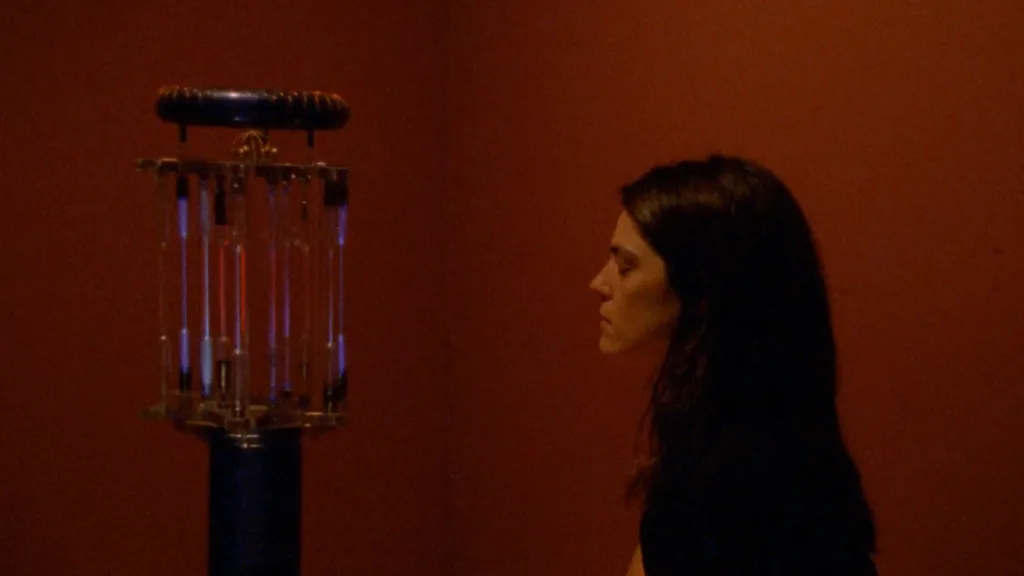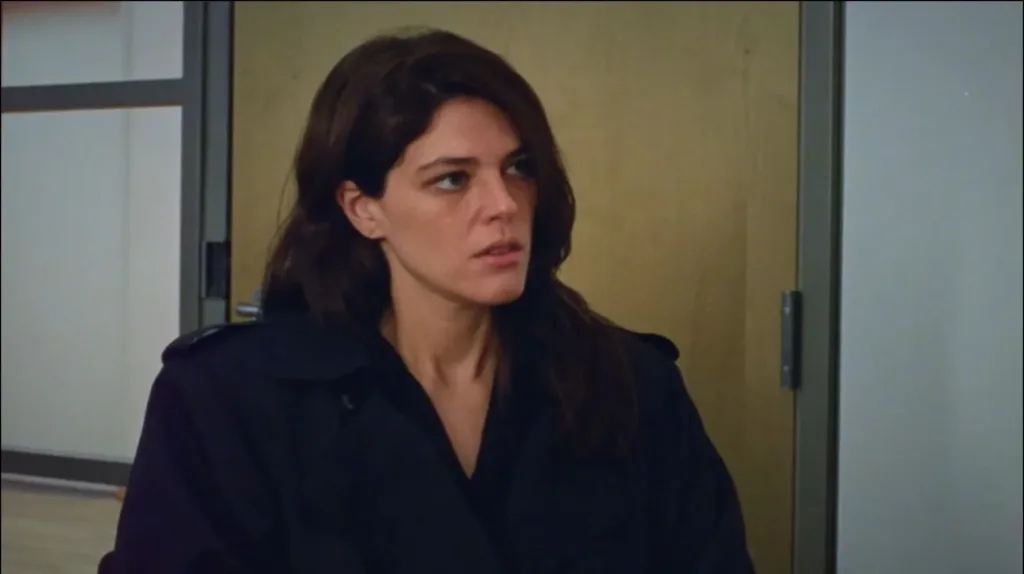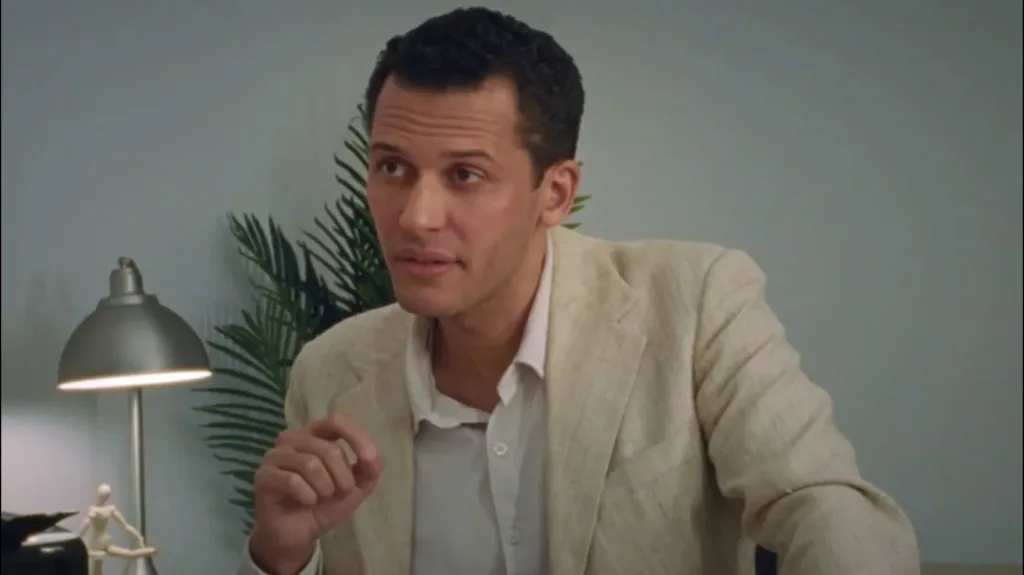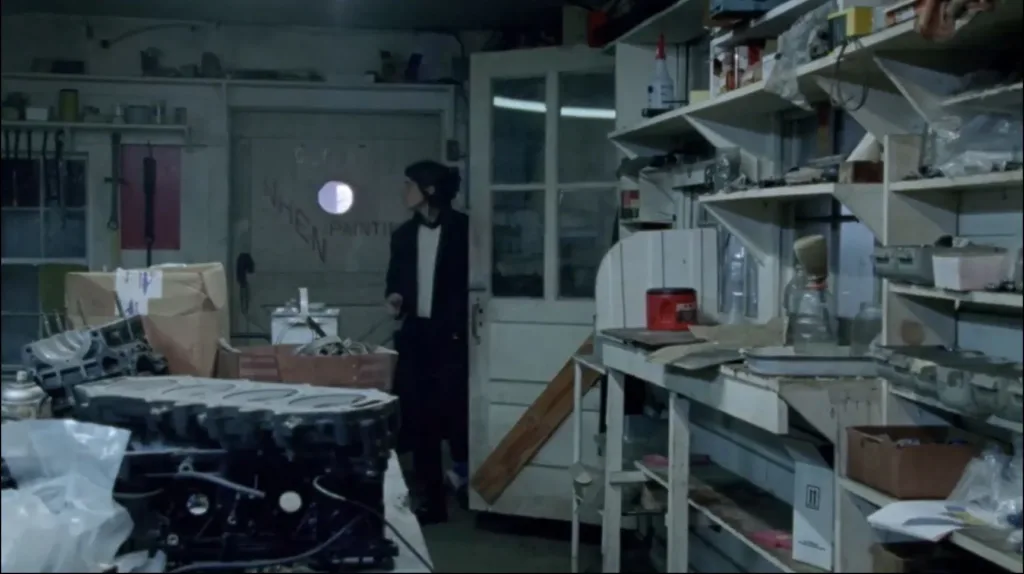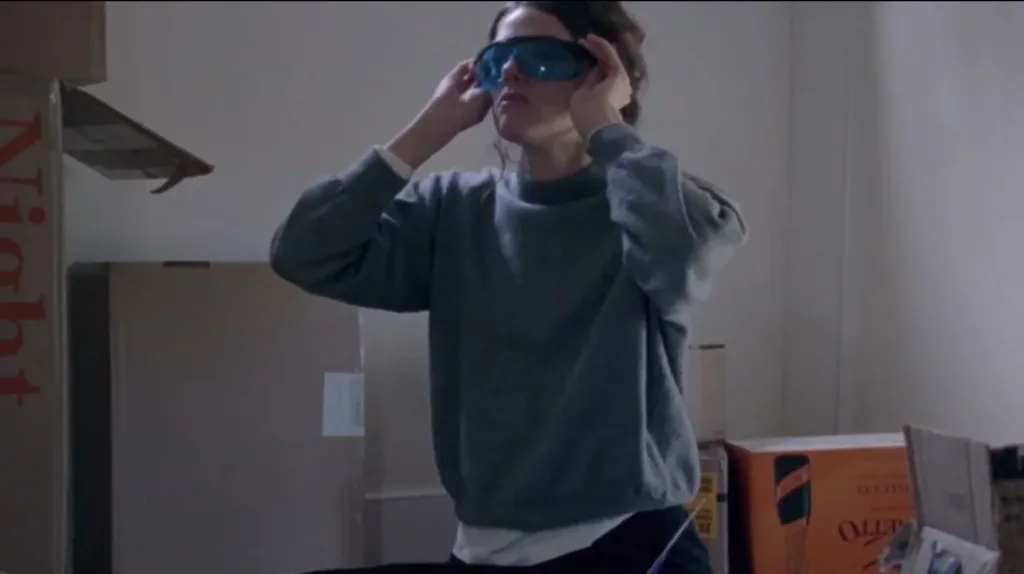Courtney Stephens’ new film Invention blends fiction and reality in insightful ways. Callie Hernandez, who co-wrote the project with Stephens, stars as a woman dealing with the recent death of her father. He was an inventor and alternative health practitioner who left behind archival footage and a mysterious healing device.
Through its nuanced storytelling, Invention delves into how people process grief and make sense of loss. Stephens shot the film on 16mm, crafting a gentle yet thought-provoking style to match the hazy nature of Hernandez’s character’s emotional state. In meeting those who knew her father, she sees him through new eyes and questions perspectives on life, healing, and belief.
Blending personal experiences – Hernandez’s real father passed in 2021 – with imaginative elements, Invention takes an intimate look at these complex topics. It seamlessly brings fiction and non-fiction together to examine our instinct towards narrative when confronting the unexplainable. With compassion and complexity, this moving hybrid work explores the grief process and human psychology in relatable yet thoughtful ways.
Unearthing the Past
Invention tells the engrossing story of Callie Hernandez’s character Carrie as she deals with her late father’s legacy. We learn her inventor dad passed away recently, leaving Carrie to handle his estate. Among her inheritance is a patent for an experimental healing device he created.
Meeting with a lawyer, Carrie finds her father left many loose financial ends. Though some seek claim to his assets, he set up a trust ensuring Carrie retains rights to the mysterious invention. It had been recalled by regulators, shrouding its fate in legal limbo like its creator himself.
Carrie visits her father’s hometown hoping to learn more. There, she meets those who knew him – and their stories challenge what little she understood of the man. Some knew him as brilliant, others saw only erratic behavior. Through their eyes, her father’s character comes alive, yet his true self remains elusive.
We feel Carrie’s skepticism as believers insist the device could heal mankind. But her skepticism shifts to curiosity as facts don’t add up. What was this man really working on in secret? Was there truth behind his “out there” theories, or only the ramblings of an unwell mind?
As Carrie pieces together her father’s past, characters represent different takes on his legacy. The devoted follower clings to hope in his vision, while a foreman saw only a disruptive boss. Each contributes another piece to the puzzle of the real man behind the myth. In getting to know these people, Carrie grapples with her own complex emotions around the father she never truly knew.
A Shifting Visual Style
Courtney Stephens brings an inventive directorial approach to Invention. She shifts between fictional scenes and documentary-like sequences, blurring the lines between these forms. The effect is intriguing, capturing the blurred and sliding nature of memory, grief and uncertainty.
Archival footage of Hernandez’s real father is woven into the narrative. His televised talks take on a surreal quality, yet feel hauntingly real. We see him as both a stranger and familiar face, much like Carrie views this remnant of the parent she didn’t fully know.
On-set audio also features, rupturing the fourth wall. Hearing the actors’ true reactions as they work enhances the meta effect. It highlights Invention as a process while Carrie undergoes her own journey of discovery.
Shot on film, the cinematography lends a soft, slightly dreamlike texture. It evokes the fog of emotions after loss. Yet crisp details breakthrough, from the prayer scene’s confrontational visuals to luminous intimacy in a post-coital moment.
Stephens implants imagined sequences that could be dreams, or real effects of the device. They take Carrie and us to abstract places that probe her psyche. Scenes bookend in transfixing tableaux, from a lit candle to rising fog that seems to carry her father’s spirit.
Unfettered by one mode, the fluid style mirrors Carrie’s fluctuating grasp on reality. Invention plays with the audience in the same shifting, open-hearted manner. Under Stephens’ guidance, every technical choice serves to immerse us in Carrie’s unmoored state of grief and growing willingness to entertain inconvenient truths.
Finding Meaning in Uncertainty
Invention explores profound themes of grief, belief, and humanity’s need to make sense of life’s deepest mysteries. At its heart lies the impact of death and the universal struggle to process loss.
Carrie grapples with her father’s passing through complex emotions we all face – anger, laughter, tears and her inner conflict over the real man versus the myth. Through her journey, we see grief takes many forms and there are no easy answers.
The film considers our instinct to seek logic where often there is none. In a world of conspiracy theories and uncertainty, some embrace fringe ideas to bear disappointment. Babby longs to preserve her hope in the device, like some cling tightly to ideals in troubling times.
But Invention does not condemn. It portrays with compassion our shared frailty and capacity for misguided thinking. Through subtle allusions, we connect themes to today’s post-truth era, when division thrives off our need for control.
Ultimately, the story resonates because it deals in exploration, not answers. Like Carrie, we cannot know her father or the truth of the device. But through intimate scenes and a gentle style, it kindles our humanity – our ability to question what we think we know and find light where there was darkness.
In a divisive world demanding simple narratives, Invention is a reminder of art’s power to foster empathy, bring people together and see ambiguity not as flaw but place of growth. It leaves us not with answers but faith in each other, and in life’s messy mysteries.
A Personal Journey Laid Bare
Invention stems from deeply personal roots. Callie Hernandez experienced her real father’s passing, elements of which shaped her character Carrie. Meta techniques enhance this grounded portrayal.
On set, Hernandez could process real emotions. Hearing her contributions – discussing memories to scene partners – offers poignant insight. Her vulnerable performance feels hard-won from wrestling real dilemmas.
Courtney Stephens’ background in non-fiction shows. Illusion-breaking moments acknowledge Invention as reconstruction of lived events. Yet this earnest approach heightens universality.
Seeing Hernandez grapple with making art from trauma gives profound understanding. Grief and fiction-making blur as catharsis. Doubt plaguing Carrie mirrors an artist’s exposure.
This intimacy lifts Invention above routine genre works. Personal storytelling moves beyond memoir to resonate widely. Their alchemy creates a moving tribute that feels authentic yet open-hearted enough to console all mourning complexity.
Hernandez found solace exploring her late father. Invention stands as a triumph of vulnerability transforming private ache into shared catharsis. Their courage paving fiction with reality inspires others traversing loss.
A Story’s Ripple Effects
Invention received widespread applause from critics, winning praise at festivals like Locarno. It’s easy to see why – the blend of lived experiences and artistic reimagining gives it deep resonance.
By honouring complexities of grieving through an intimate yet ingenious framework, this work will surely resonate long after credits roll. Its empathetic spirit sees past surface tragedy to find hope, the spark that lifts all art from mere moments to tools for understanding our shared human experience.
As more appreciate such courageous storytelling, it may embolden others to mine personal sorrows creatively. Through vulnerability, Hernandez and Stephens craft catharsis and find audiences worldwide grappling with their own loss. Their triumph proves private pains need not stay private if transformed into sources of light.
This success could buoy both talents further. Hernandez continues enriching diverse roles, while Stephens’ boundary-pushing invites ever more adventurous. As festivals forecast enduring impact, Invention may inspire auteurs to interrogate existence through radically personal forms – where facts and fantasies entwine in art’s embrace.
Its ripples suggest community in our differences and solace where was only solitary grief. Like all works remaking emotional frontiers, Invention leaves an opening for conversations that heal. Its magic lies in seeing how far creativity might carry us when we dare transform private pains into public powers for good.
A Journey Leaving Its Mark
Invention proves a work of quiet beauty and insight. Blending Courtney Stephens’ ingenious style with Callie Hernandez’s raw vulnerability, it tenderly probes our deepest struggles with loss.
Viewers share in Carrie’s moving voyage of discovery. We’re invited into her emotional process as Stephens seamlessly joins fact and imagination. Hernandez immerses us in her character’s turmoil, allowing a feeling of companionship in coping with life’s hard questions.
Together they spin fiction and non-fiction into gold, crafting something strikingly authentic. Invention sticks with you, less for neat conclusions than its compassionate understanding. We’re reminded that in grief, answers mean less than embracing ambiguity and finding moments of light.
As Carrie learns through encounters what shaped her late father, so do we gain perspective on our own lives. The film leaves us contemplating humanity’s need for stories – how we frame the past shapes how we bear the present.
In Hernandez and Stephens’ hands, introspection becomes a meditation on life, loss, and our capacity for empathy. Their gift will linger, reminding all who experience it that in our uncertainties lie opportunities for wisdom and connection. A film to treasure.
The Review
Invention
Invention offers a poignant, visually compelling depiction of personal grief, finding solace in its sensitivity and compassion.
PROS
- Powerful performances from Callie Hernandez and supporting cast
- Imaginative direction from Courtney Stephens utilizing unique stylistic choices
- Universal and timely exploration of themes like loss, conspiracy thinking, and ambiguity
- Blends fiction and non-fiction into a thought-provoking experience
CONS
- Minimal resolution to story threads
- Potentially too abstract for some audiences
- Some archival footage less integral to narrative









































